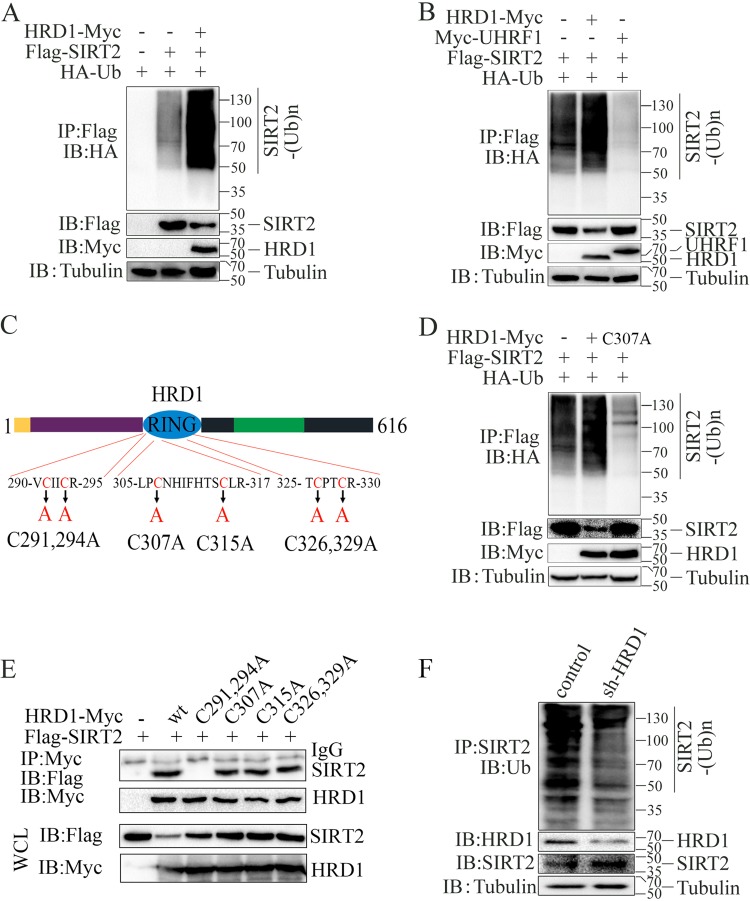FIG 3.
HRD1 promotes SIRT2 ubiquitination. (A) HA-ubiquitin, Flag-SIRT2, and HRD1-Myc plasmids were cotransfected into HEK293T cells. SIRT2 ubiquitination was detected by immunoprecipitation of SIRT2 with the anti-Flag antibody and Western blotting with anti-HA antibody. The protein expression levels of HA-ubiquitin, SIRT2, and HRD1 in the whole-cell lysates were confirmed. (B) HA-ubiquitin and Flag-SIRT2 expression plasmids were cotransfected with HRD1-Myc or Myc-UHRF1 into HEK293T cells. SIRT2 ubiquitination was analyzed as for panel A. (C) Schematic representation of HRD1 and its point mutants. The conserved cysteine (C) residues in the RING domain were replaced with alanine (A). (D) HA-ubiquitin and Flag-SIRT2 expression plasmids were cotransfected into HEK293T cells with HRD1-Myc or with HRD1/CA mutants. The effects of HRD1 and its mutants on SIRT2 ubiquitination were analyzed as for panel A. (E) The interactions of SIRT2 with wild-type (wt) HRD1 or its mutants were analyzed as indicated for panel C. (F) HA-ubiquitin expression plasmids were transfected into the control and the stable knockdown HRD1 A549 cancer cells. SIRT2 ubiquitination was detected via immunoprecipitation of SIRT2 with anti-SIRT2 antibody and Western blotting with anti-UB antibody. The protein expression levels of SIRT2 and HRD1 in the whole-cell lysates were confirmed.

